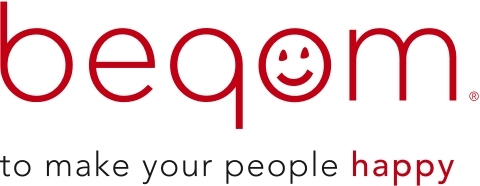beqom Study Reveals Evolving Concerns Around Unfair Pay Amid Increasing Pay Gaps and Rising Inflation
beqom Study Reveals Evolving Concerns Around Unfair Pay Amid Increasing Pay Gaps and Rising Inflation
NEW YORK--(BUSINESS WIRE)--Over the past four years, impacts of the pandemic, rising inflation and new pay transparency legislation have left Americans wondering if they’re being paid fairly. In fact, more than half of U.S. employees (51%) think their workplace has a problem with gender pay gaps–up 121% since 2019–and more than a third (35%) think the gender pay gap has increased in the last two years. Furthermore, nearly two in five (39%) employees do not think they’re paid fairly. These findings are according to beqom’s Leveling the Paying Field Report, which uncovers how pay gaps and pay transparency are impacting today’s workforce. Speculations around unfair pay are now sparking new discussions among colleagues, since employees say inflation (58%) and the pandemic (56%) have made them more likely to discuss pay with their colleagues.
Although employees see issues with pay gaps, beqom found over half of employees (51%) think their employer or manager takes closing the gender pay gap seriously, while one in four (25%) disagree. This may be why most (68%) employees would be more willing to work at a company that discloses gender pay gaps (up 5% from 2019), as well as ethnic pay gaps (63%), salary ranges for roles internally (66%) and salary ranges for roles externally (68%).
“To bridge pay gaps in the workplace, employers must proactively build pay equity and increase transparency within their organization,” said Tanya Jansen, co-founder of beqom. “When employers make a conscious effort to boost pay equity and provide more transparency around pay decisions with their staff and candidates, they help to build a level of trust that contributes to a feeling and reality of fair pay. Amid today’s shifting work landscape and volatile job market, this meaningful progress toward remediating pay gaps and bias is critical to maintaining higher employee retention.”
Additional findings from the report show that:
Employees believe national pay transparency would make a difference in closing pay gaps
- Nearly three quarters (73%) of employees think widespread or national pay transparency laws would help close pay gaps.
- Two in five (39%) U.S. employees report there are pay transparency laws in their state or city, but another 38% don’t know if these laws exist in their location.
A unique labor market has resulted in new hires that often make more than current employees – and it’s not going unnoticed
- Nearly three in five employees are aware of how much someone else in their current position makes at their company (60%), how much a new hire in their position makes at their company (60%), and how much someone else makes in their position at a different company (57%).
- For those who know how much a new hire in their position makes, more than a third (36%) reported the new hire makes more than they do.
Although those who asked for a raise in 2022 often received one, men were more likely to reap the benefits
- More than half (58%) of employees asked their employer or manager for a raise in the last year. Of those who asked for a raise last year, one third (34%) received a raise that was below their expectations.
- More men (51%) than women (42%) who asked for a raise received one that met or exceeded expectations.
- Of those who did not ask for a raise, a quarter (25%) didn’t ask because they were happy with their salary, but others didn’t ask because they were proactively given a raise (22%), they didn’t feel comfortable asking due to lack of open conversation about pay at their company (22%), concern of a recession made them feel they couldn’t ask (17%), or they knew they made more than their colleagues in the same position (14%).
Few employees would give up their extra compensation to even the playing field, but they are willing to be more transparent
- Less than half (43%) of employees would forgo their bonus if it meant creating equal pay at their company.
- Millennials (50%) are the most likely to say they would forgo their bonus if it meant creating equal pay at their company, compared to Gen Zers (40%), Gen Xers (40%) or Baby Boomers (33%).
- Nearly two thirds (63%) of employees would be willing to publicly share their salary to benefit others’ knowledge of compensation in the industry.
To discover the complete findings of beqom’s Leveling the Paying Field Report, download the full report.
About beqom
beqom provides a unified total compensation and continuous performance management platform. With beqom, companies can simplify the compensation cycle and create a culture of feedback and coaching, while streamlining performance reviews, salary planning, bonus, incentives, and LTI allocation.
Integrating performance and rewards into one solution improves employee engagement and productivity, and supports informed decision-making. beqom provides valuable insights to optimize compensation and make data-driven decisions, ultimately leading to higher employee retention rates and greater overall business success. With beqom, companies can take a holistic approach to compensation and performance management, streamlining processes and driving better results.
Contacts
Media Contact
Email: media@beqom.com
